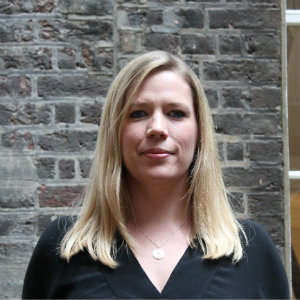Working in last week’s local elections provided a welcome reminder of the small acts that come together to make our democracy function. For me, these small acts are a key element of our public service ethos, alongside the big picture vision for the future.
As the dust settles, I wonder about how our elected officials and those working across the public sector are defining their own public service ethos within the current challenges they face. We want to hear from Fellows in public services to better understand these issues and to see how we can help spark change.
I have always had a love of small acts – little gestures or actions that make up the background to our lives. The things that make us human no matter who or where we are - little actions, quirks, eccentricities. On their own, these small acts might not change the world, but they make it a richer place to be.
Taking part in elections allows me to immerse myself in this joy of small acts. I have worked as a Presiding Officer at a polling station in Hertfordshire for a few years now and even though I spent almost a decade working in the local government sector (before moving to the RSA) – the elections are the one time when I feel a real connection to ‘public service’ in its broadest sense. A connection to people all across the country who I have not met, but who are all at the same time engaged in the same acts as me. The same early start, the same lists to be marked in the same way, the same ballot papers, the same polling cards, and it goes on.
And we are not just connected on that one day, but across time. A Presiding Officer thirty years ago will have sealed the ballot box, stacked the papers, greeted voters, checked the names in the same way I do. The counts too are broadly the same no matter where you are, the long tables with people in a row counting small bits of paper with piles of paperclips and elastic bands as their only aids. We are all of us connected in these small acts across time, across place, to the same purpose.
There is more to democracy than elections – that is certainly true. This was recently highlighted by our Citizens Economic Council. But they are a good place to start. Of course we must not shy away from the big strategic debates, such as the role of communities in managing their own health (as explored in our recent Health as a Social Movement project) or the nature of the dialogue between Citizen and civic institution (as Matthew will explore in his annual lecture). But I strongly believe that there is a lot to learn about the way that these small, shared experiences build up to form a set of memories, values and purpose across generations and geography. It’s hard to define what we mean by a public service ethos – but to me it always held two elements. The small, routine, mundane, but reliable processes and actions that bind us all together. And the big picture (which is also more personally subjective), the vision of a better future and the values that drive those who deliver public services.
With a newly elected set of local Councillors across the country, whether it is their first term or their twenty first, they are facing times of unprecedented financial austerity. And now I find myself at the RSA and working with a Fellowship with its own shared ethos of progressive social change, of faith in each person’s power to create, with a commitment to bringing enlightenment into the 21st Century. If you share these values of our Fellowship and work in public services today, no matter your political affiliation: what does it mean to be progressive in the context of reducing service provision? What space is there for innovation if you are solely delivering services defined in legal statute? How do you define your public service ethos whilst making significant redundancies in your own workforce?
We would like to work with Fellows in public services to understand how they are putting these values into practice. We want to help unleash to power of our networks – such as the Creativity in Public Services Fellow led network - to spark and nurture initiatives that can deliver progressive change in the contemporary context. And we would like to do that by working together to create Fellow-led communities that support each other in the face of long-term public service challenges.
If you would like to know more about the RSA's Public Services and Communities work, register your interest using the sign up box below.

Be the first to write a comment
Comments
Please login to post a comment or reply
Don't have an account? Click here to register.